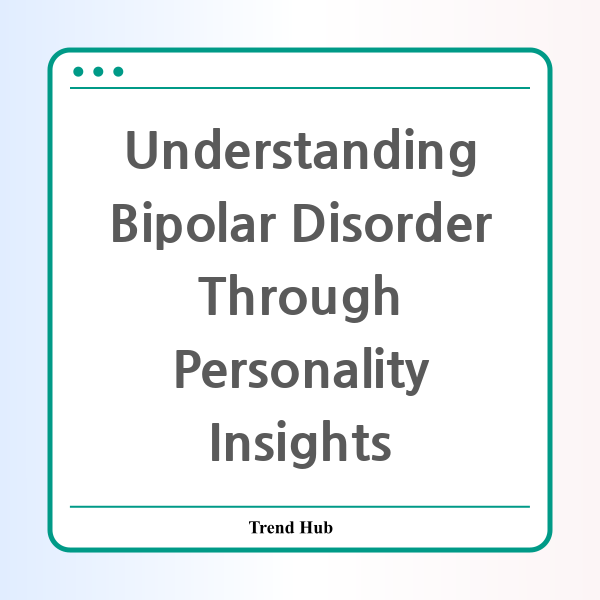* This website participates in the Amazon Affiliate Program and earns from qualifying purchases.

Can your personality prediction hold the key to managing bipolar disorder? Recent findings suggest that personality traits significantly influence the experience of individuals with bipolar disorder, offering a novel approach to treatment and improved outcomes.
Research conducted by the University of Michigan’s Heinz C. Prechter Bipolar Research Program has uncovered a connection between specific personality traits and the likelihood of recurrent depressive episodes among those struggling with bipolar disorder. By analyzing data from over 2,500 participants, researchers identified various personality styles that could either heighten or decrease the risk of long-term mental health complications.
One of the compelling revelations from this study is the role of neuroticism. It was consistently highlighted as a risk factor, suggesting that individuals with high levels of this trait may be more susceptible to the negative consequences of bipolar disorder. On the flip side, individuals exhibiting low neuroticism and more balanced personality traits seemed to benefit from protective factors that could mitigate depressive episodes.
The implications of this research extend beyond mere academic interest. If personality assessments can inform treatment methodologies, clinicians may be better equipped to tailor interventions that directly address the unique traits of their patients. For instance, traditional therapeutic approaches could be modified based on the personality traits of the individual, enabling a more personalized treatment strategy that aligns more closely with their emotional and behavioral tendencies.
In a related discussion among leading psychiatrists, the focus shifted to how improving outcomes in bipolar disorder remains paramount. Experts emphasized the urgent need to assess current treatment outcomes, identify effective methodologies, and share successful practices within the healthcare community. The overarching goal is to bridge the gap between clinical evidence and everyday practice, ensuring that all patients receive the highest standard of care.
One proposed framework for achieving this is the establishment of learning health systems specifically designed for mental health. This system promotes collaborative learning among healthcare professionals, leveraging data derived from patient interactions to identify best practices and optimize treatment protocols. Such initiatives are expected to dismantle silos in care, fostering a community where knowledge and experience can be shared efficiently to enhance patient outcomes.
Another exciting development in this emerging landscape is the creation of the Bipolar Action Network. By connecting experts from diverse medical and psychological backgrounds, as well as individuals affected by the disorder, this network aims to foster an environment where collective wisdom can drive significant improvements in treatment approaches.
As these new strategies take root, it's essential to maintain an ongoing dialogue about the evolving understanding of bipolar disorder. By embracing the complexity of individual personality traits and integrating this knowledge into treatment frameworks, we move closer to providing comprehensive care that acknowledges the multifaceted nature of mental health.
In conclusion, the intersection of personality and bipolar disorder represents a promising frontier in psychiatric treatment. With ongoing research and collaborative efforts, there’s hope for developing more effective, personalized care strategies that can lead to better outcomes for individuals living with this challenging condition.
* This website participates in the Amazon Affiliate Program and earns from qualifying purchases.